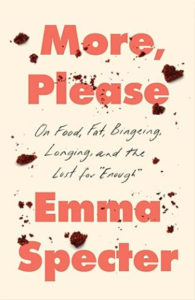
Chapter 1: Introduction to Disordered Eating
- Start Time: 00:00:07
- End Time: 00:01:29
- Summary: The speaker introduces the book “More Please” by Emma Spector, discussing the concept of disordered eating and its implications. They share personal experiences with food issues and express interest in Spector’s younger perspective on eating disorders.
Chapter 2: Themes in Spector’s Work
- Start Time: 00:01:29
- End Time: 00:02:21
- Summary: The speaker highlights various themes in Spector’s book, including dieting, fatphobia, and the prevalence of food disorders in the LGBTQ community. They mention learning new insights from Spector’s research and emphasize the importance of fellowship in relation to food.
Chapter 3: Personal Reflections on Body Image
- Start Time: 00:02:21
- End Time: 00:03:57
- Summary: The discussion shifts to Spector’s personal experiences with body image, comparing treatment received at different weights. The speaker reflects on societal expectations and the importance of self-acceptance, emphasizing that weight is just one aspect of health.
Chapter 4: Critique of the Book’s Structure
- Start Time: 00:03:57
- End Time: 00:05:55
- Summary: The speaker critiques the structure of Spector’s book, expressing a preference for more memoir content over interviews. They find the narrative style choppy and distracting, suggesting that Spector’s personal story could stand alone without the additional research.
Chapter 5: Insights on Hunger and Moderation
- Start Time: 00:05:55
- End Time: 00:08:12
- Summary: The speaker shares insights from Spector’s sources about understanding hunger and the importance of moderation. They discuss the challenges of reconciling food issues and the need for compassion towards oneself, especially regarding past experiences.
Chapter 6: Conclusion and Recommendations
- Start Time: 00:08:12
- End Time: 00:10:06
- Summary: The speaker concludes with a recommendation to read “More Please,” noting its valuable takeaways for those struggling with food disorders. They suggest finding a used copy instead of purchasing new, emphasizing the book’s worth despite its structural flaws.
